Accueil › Forums › Questions sur les bateaux Edel › Questions sur l’Edel 4 › Delamination in keel area
Étiqueté : Dérive quille Saumon voie d'eau
- Ce sujet contient 8 réponses, 3 participants et a été mis à jour pour la dernière fois par
Uschtrin Wilhelm, le il y a 1 année et 7 mois. Ce sujet a été consulté 888 fois
-
AuteurMessages
-
3 août 2023 à 0 h 11 min #32159
Hello,
the Edel 4 I am looking to buy has a couple of issues, most of which I feel confident to handle. Pretty much the only one that I don’t feel capable of dealing with is some delamination in the keel/trunk area.
There is a line running from the front to the back along the trunk on both of its sides, along which the hull is not drying. I am not sure what the design of the Edel 4 is, and if it’s a crack or just the line where hull and trunk are joined, that has become leaky. Anyways, there appears to be water entering, as this line remains wet and there is deformation and rusty bolts in the bilge as well. Plus salt water is accumulating in the bilge. I’ll attach some pictures.
The guys from the boat yard said, that they would have to grind/sand away all the delaminated bits from the inside and outside and replace it, plus some for strengthening. This sounds like a very big job and I am honestly not sure if it is worth it for this boat.
Why am I here? Maybe you guys can:
– … tell me your experience with issues like this. Either from your own boat or ones you’ve heard about.
– … link to threads around here, that discuss this issue or similar ones. Or even just provide me with search terms for the search, is hard for me to find the proper ones… « quille »+ x?
– … explain how exactly the keel/trunk work. How is the trunk attached to the hull? What is it made of? What is its design/construction? What material is it all made of? How does it detach? There more information the better.The boatyard guys want to probe it tomorrow to see what the damage is and how the trunk is built. But I think the more information I can give them (e.g. simply detach the trunk before sanding), the easier it would be for them (and less costly for me).
Cheers
Will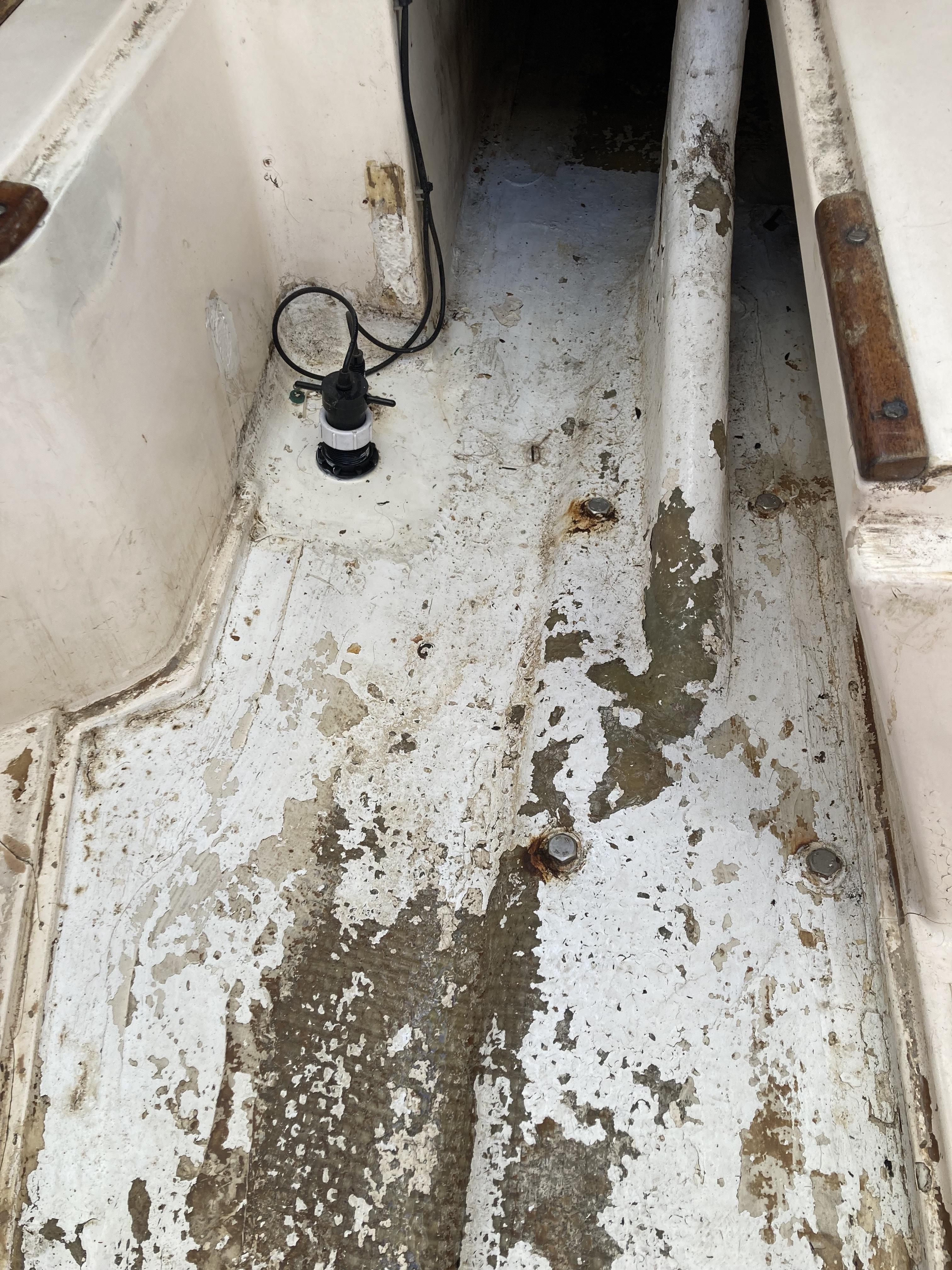
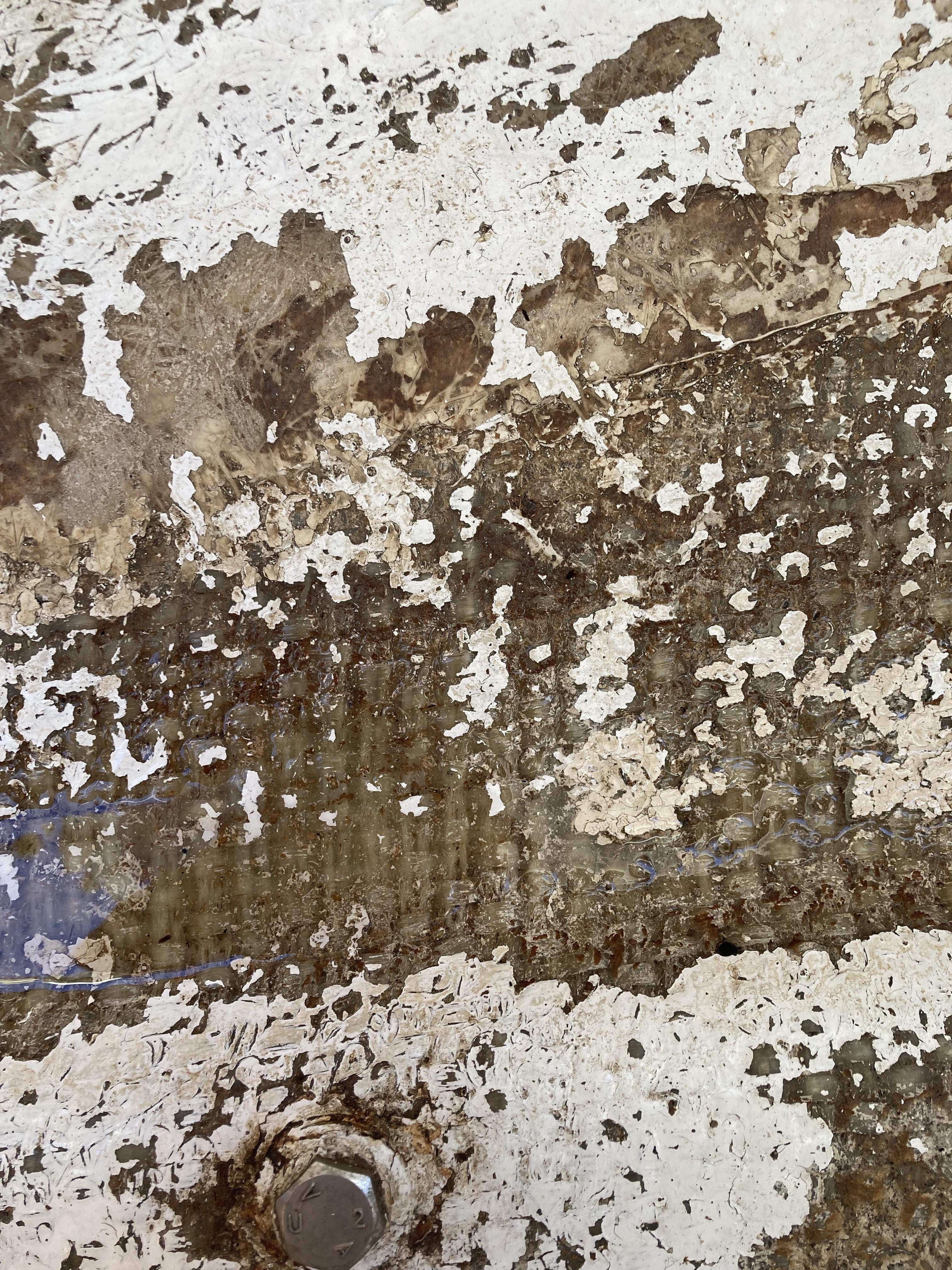
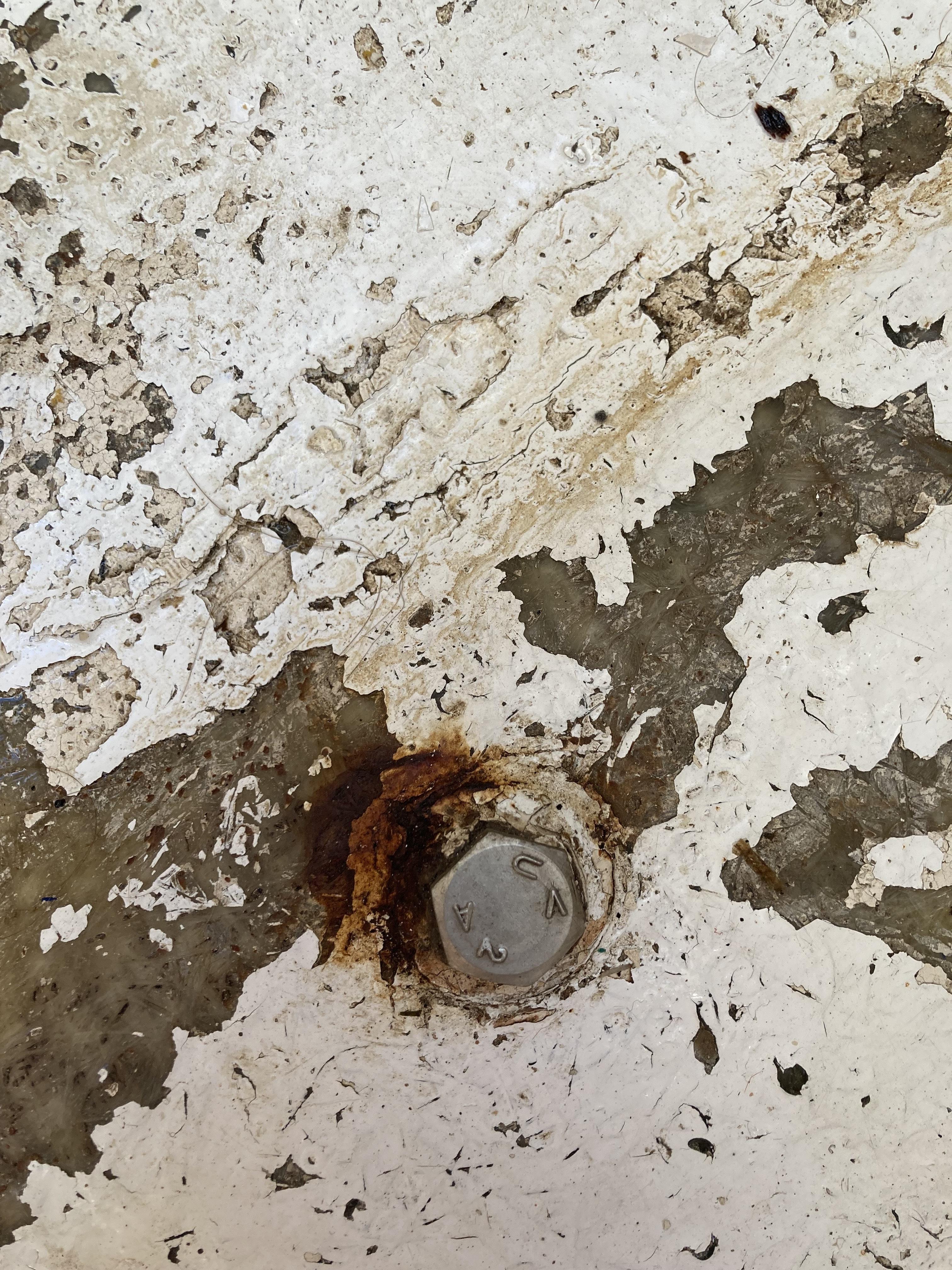
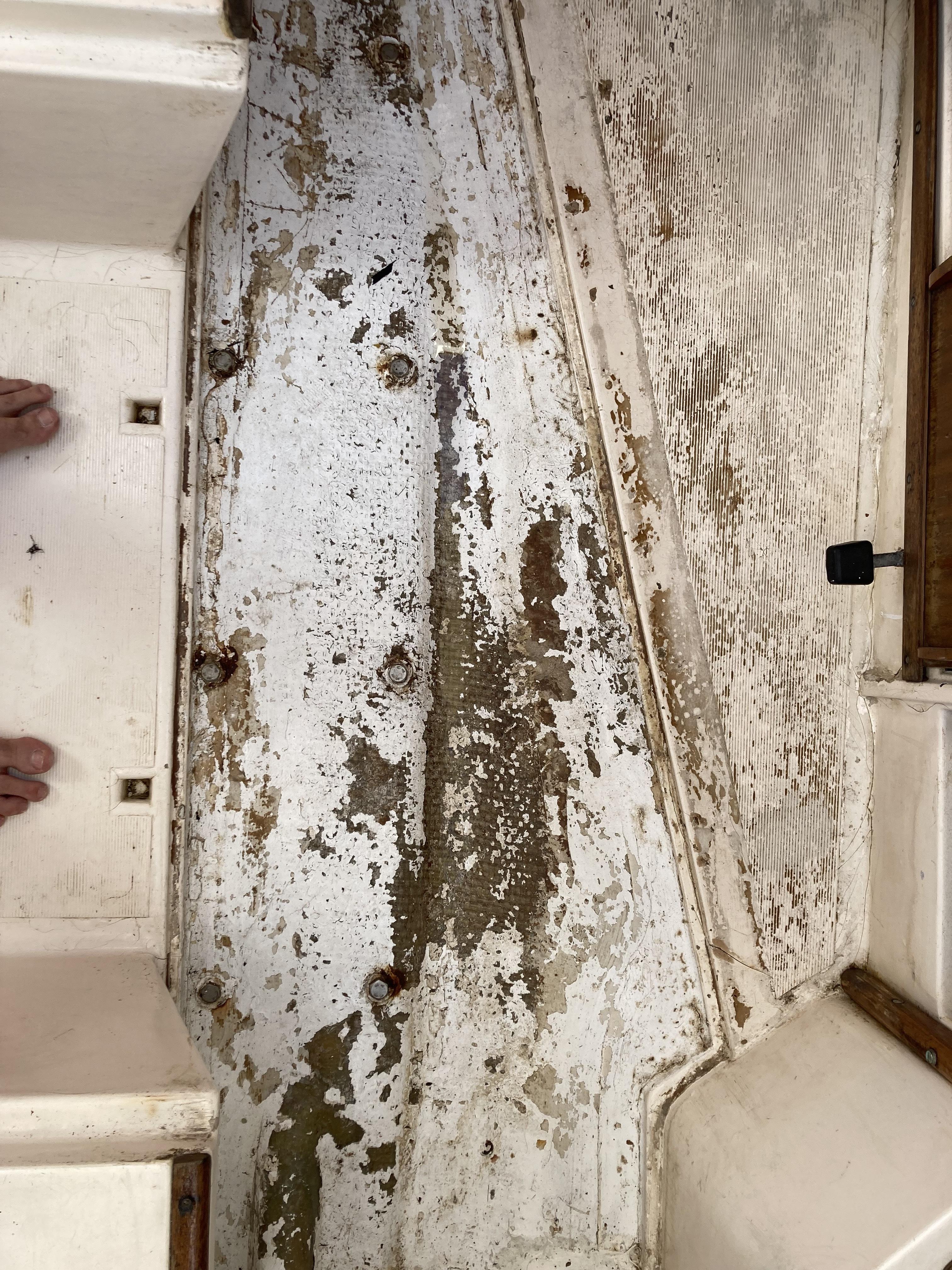
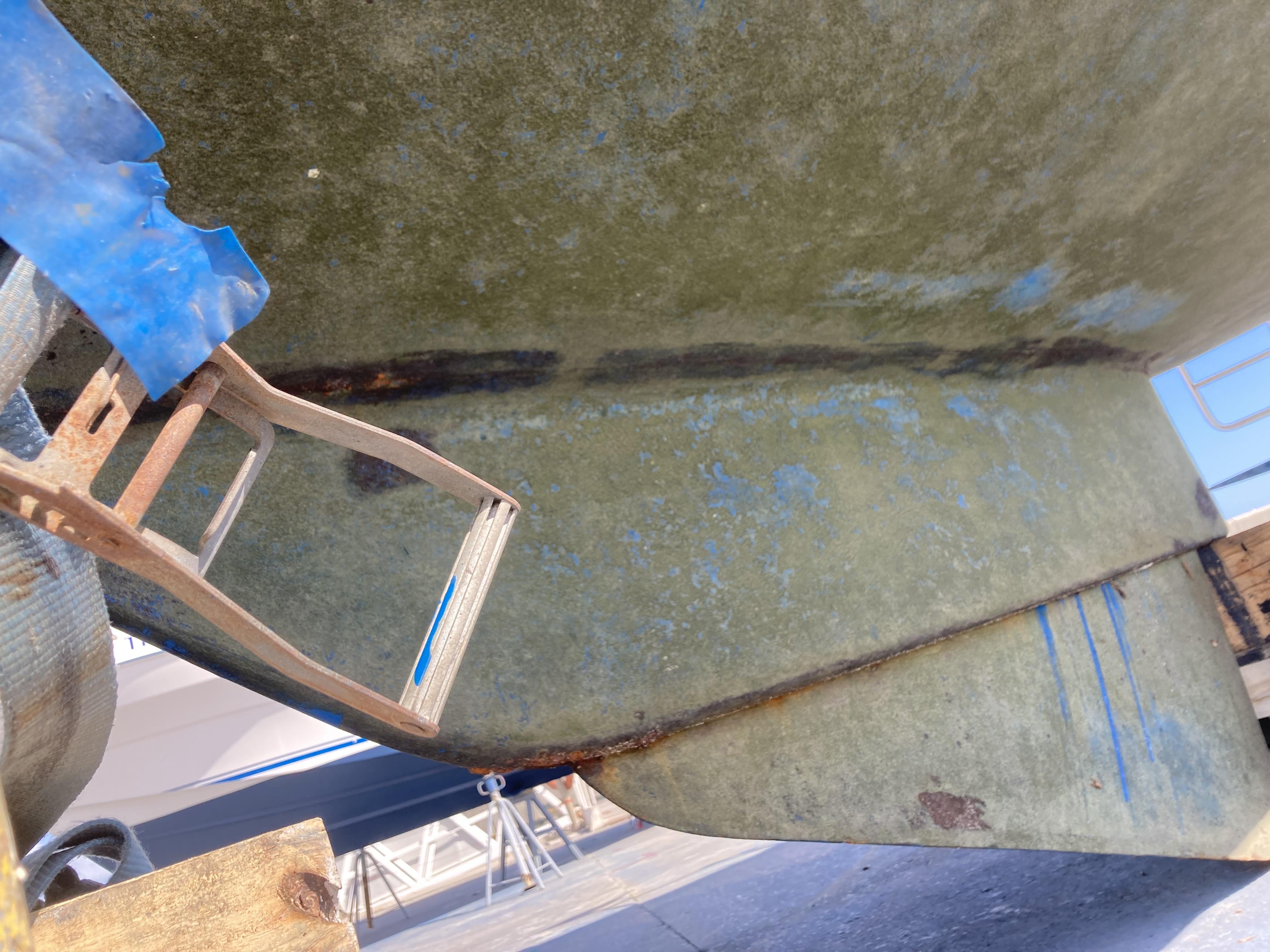
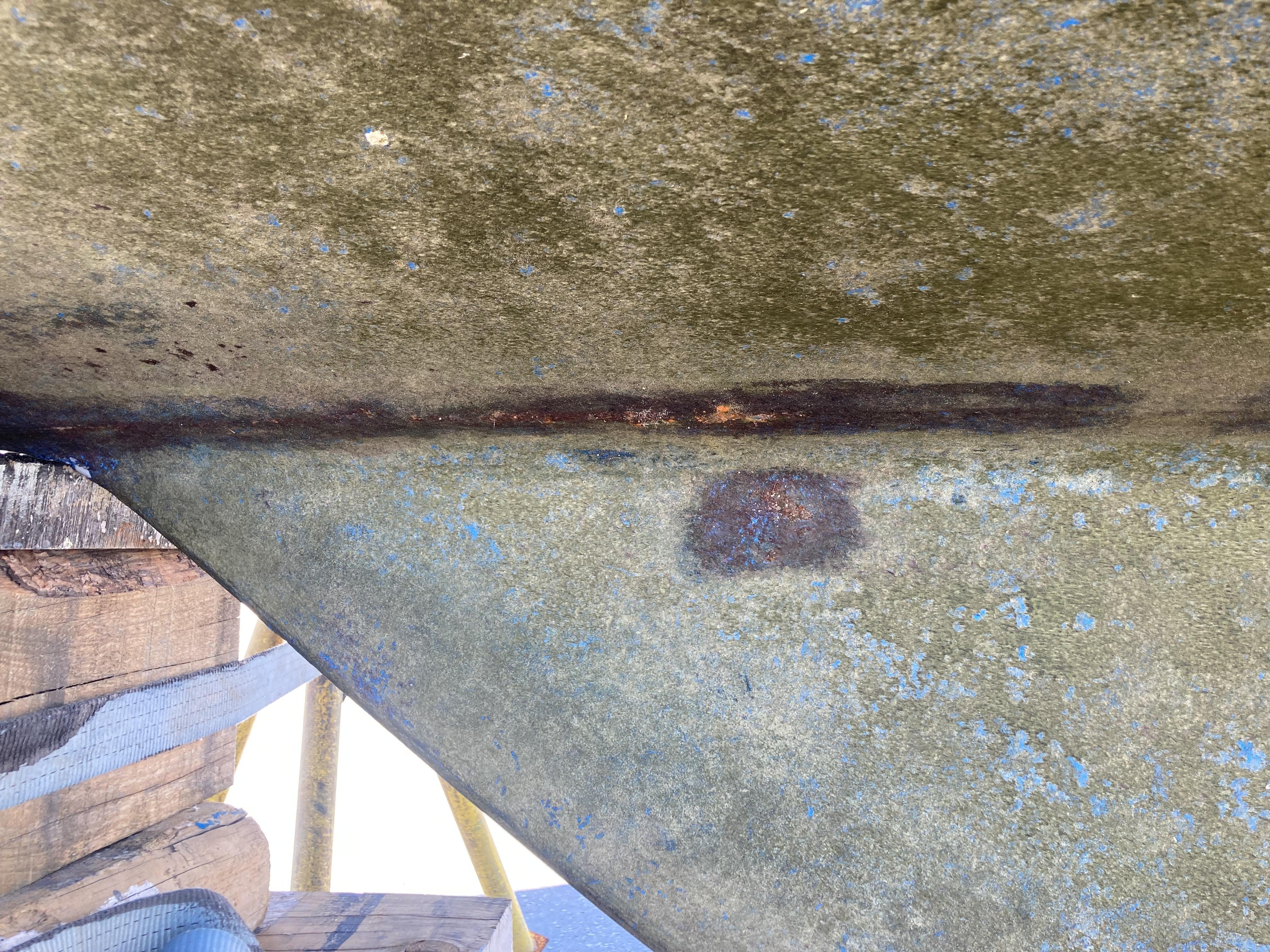
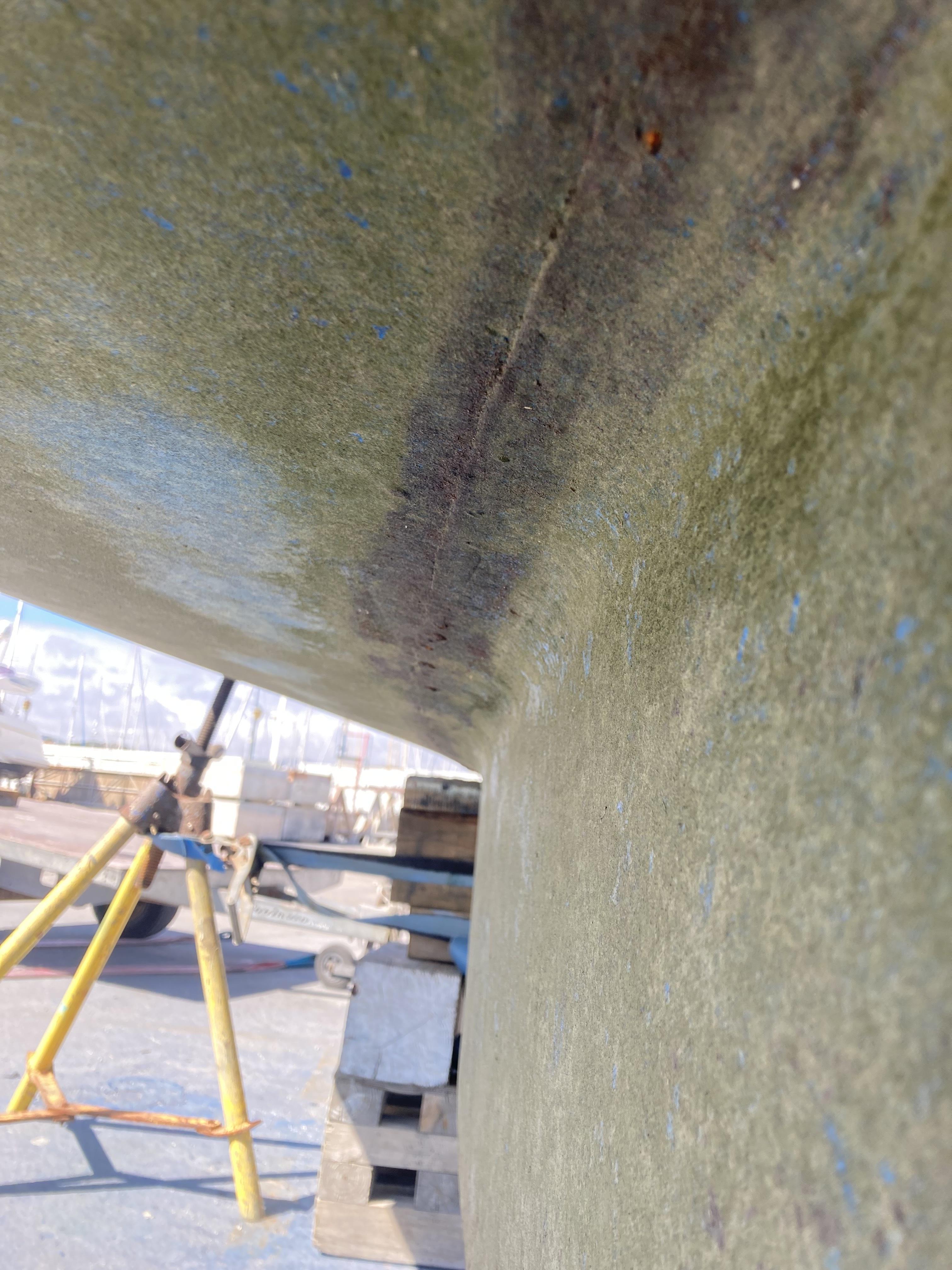
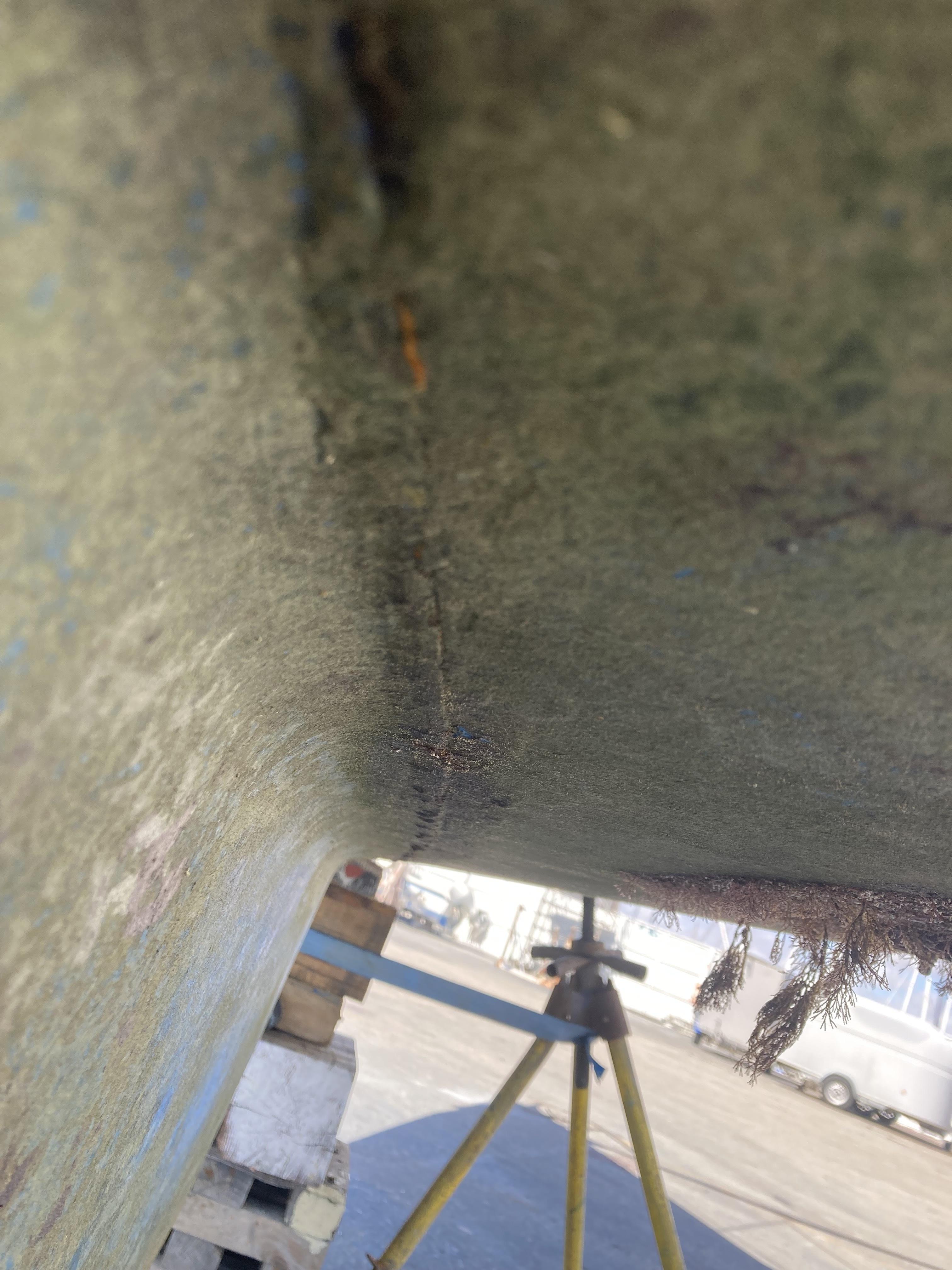
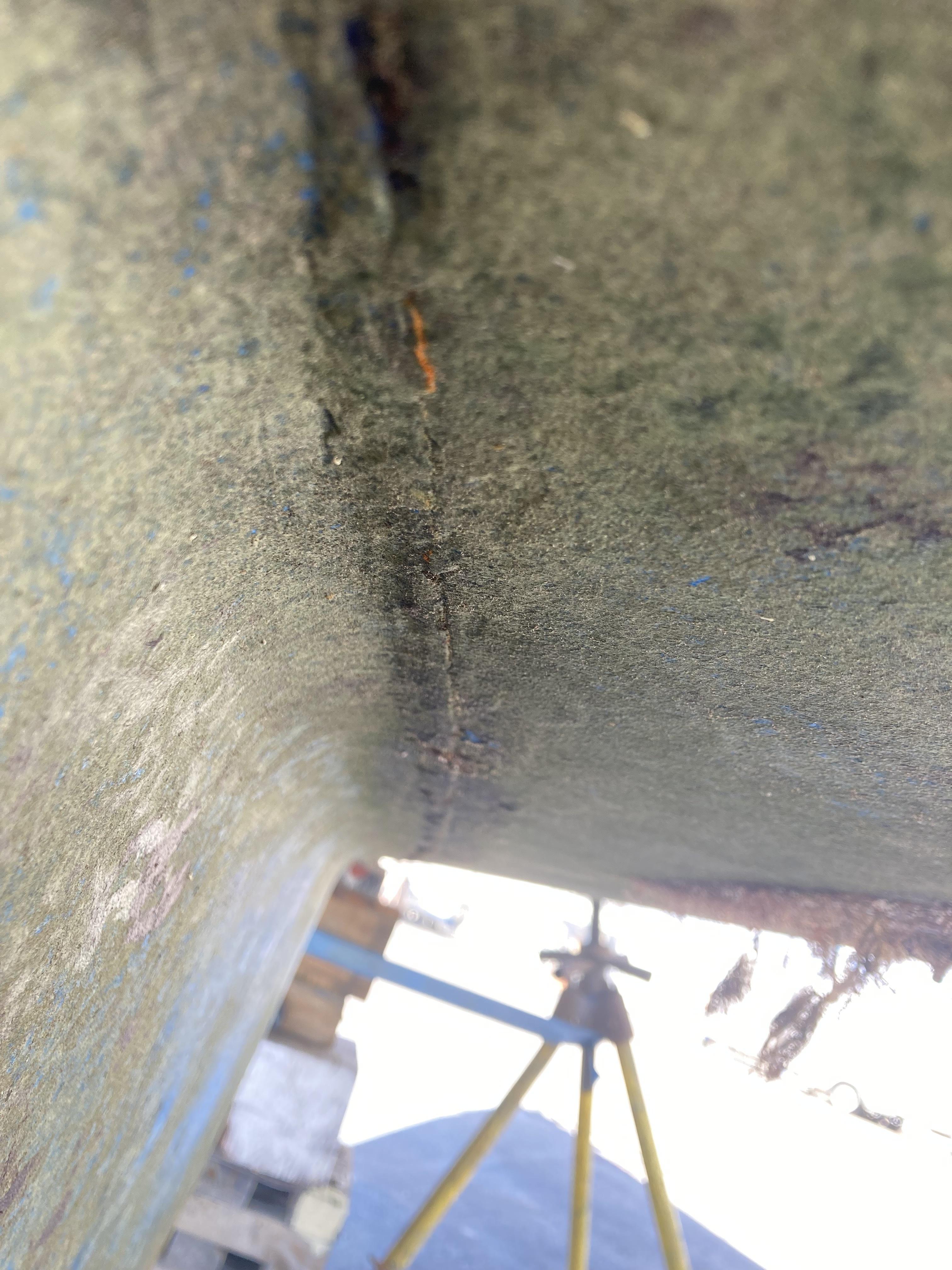
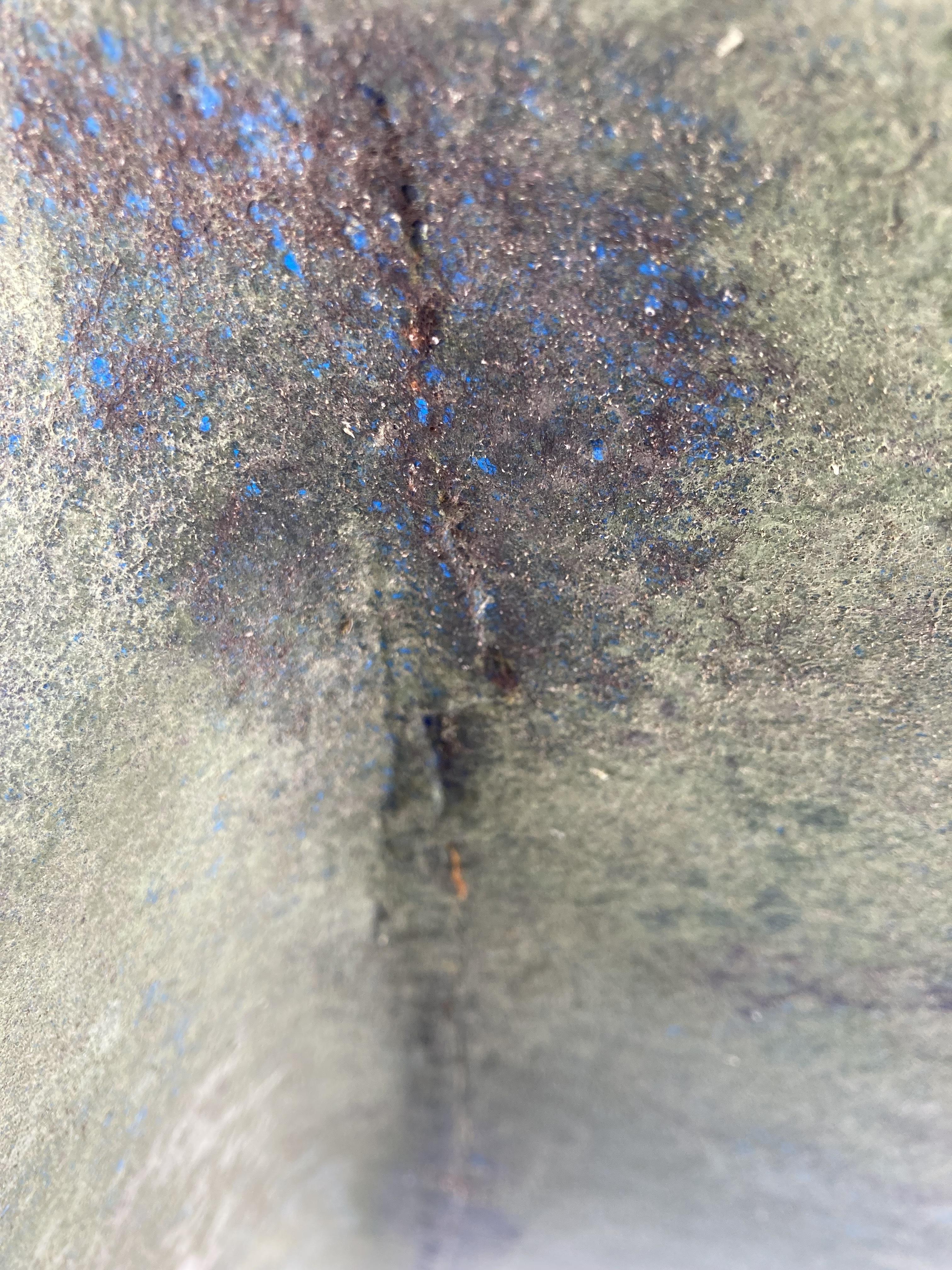 3 août 2023 à 19 h 28 min #32164
3 août 2023 à 19 h 28 min #32164Hi Wilhelm,
if you don’t feel like fixing this issue (I mean if you’re not totaly sure of how to do it when looking at it), then my advice would be to go find another boat :)
This is no easy fix, and can be very dangerous.
kersau is facing such problems right now. I met him and I think he knows what he’s doing, and it doesn’t look like something easy for him either.
The keel is fixed to the hull with the bolts you showed, in a recessed area. There is also a seal that can be redone probably with sikaflex (ask an expert for the best for this use). To fix the problem, you have to unmount everything, and redo it properly. It’s best to have a crane to do it properly, so it’s added costs. If bolts are rusted, they will probably snap, so you’ll have to drill them, redo the thread… this is all hard times. It can be fixed but it takes time, money and experience.

The color of the seal between the keel and the hull, is to me an absolute red flag. I wouldn’t buy this boat, for sure (I hope it’s still a buying project for you)
 .3 août 2023 à 20 h 10 min #32165
.3 août 2023 à 20 h 10 min #32165Hey Alain, thanks for writing back.
The color of the seal between the keel and the hull, is to me an absolute red flag. I wouldn’t buy this boat, for sure (I hope it’s still a buying project for you) .
You mean the dark (wet) stripe along that line?
I haven’t bought it yet, no. But I also wouldn’t be doing it myself, I would have it done professionally. But yeah, that’s where the question of it being economic comes in.
3 août 2023 à 20 h 15 min #32166Here are some more pictures. The boatyard guys ground away some from the inside and outside to have a better idea of what they’re dealing with.
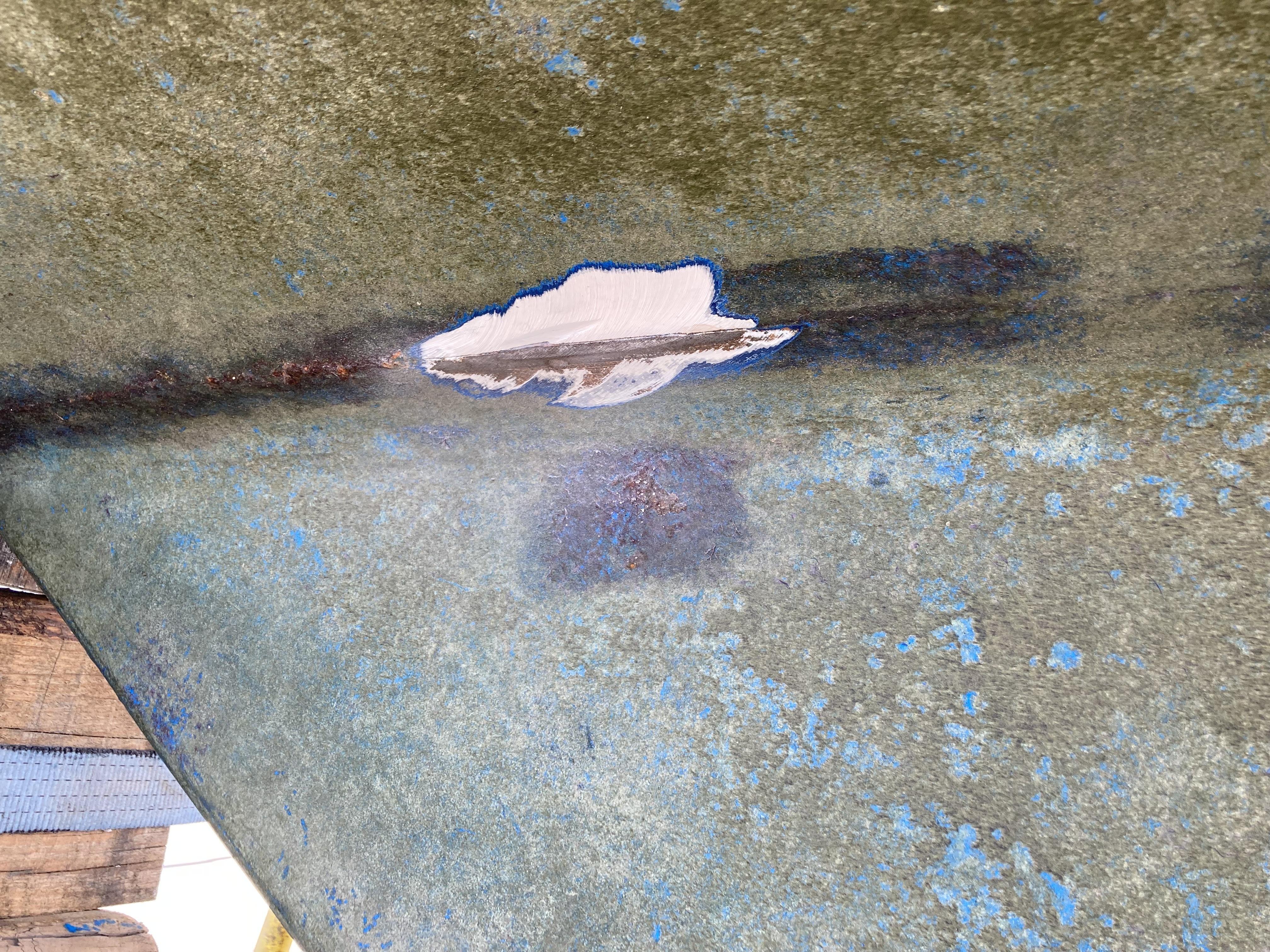
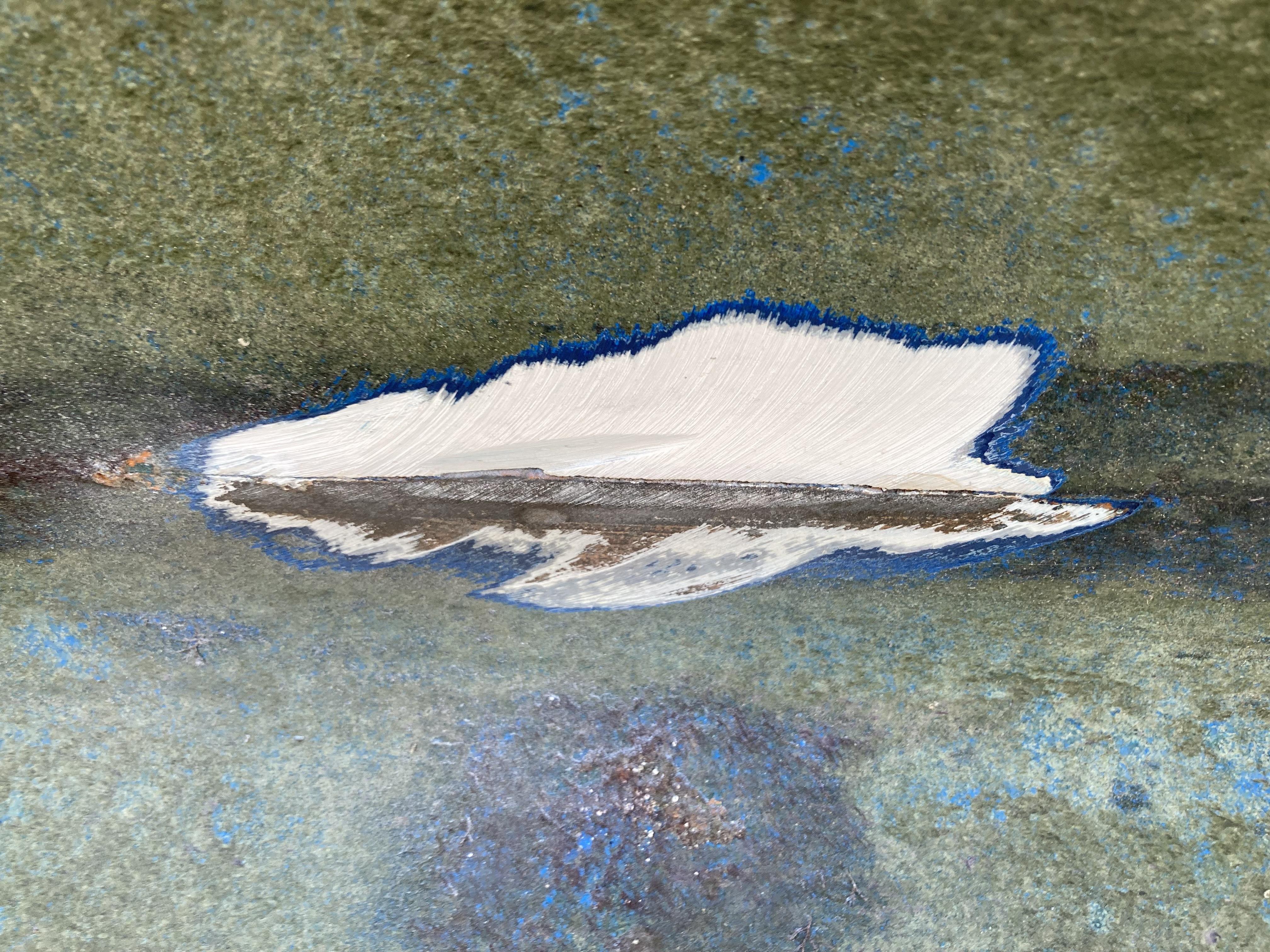
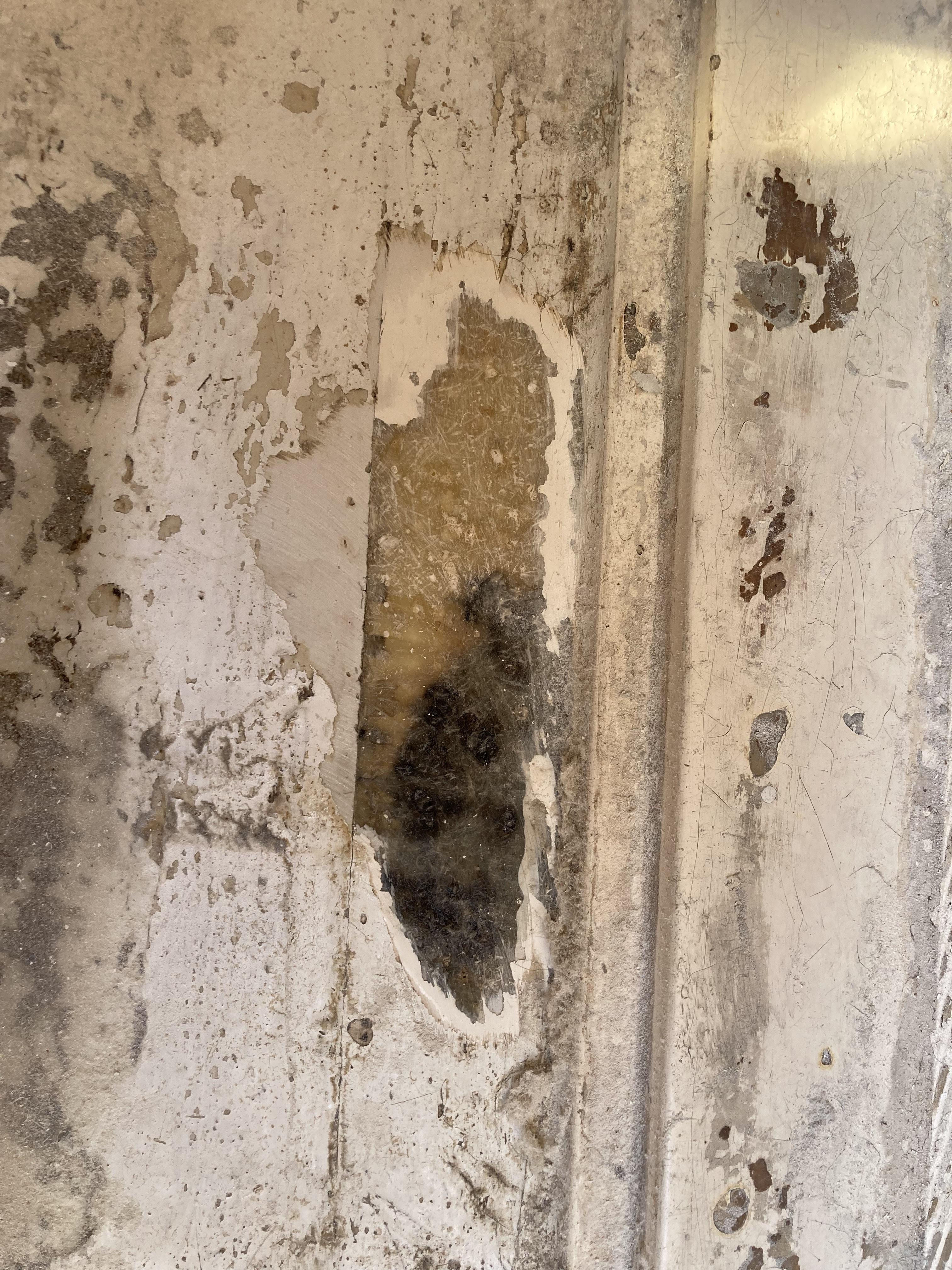
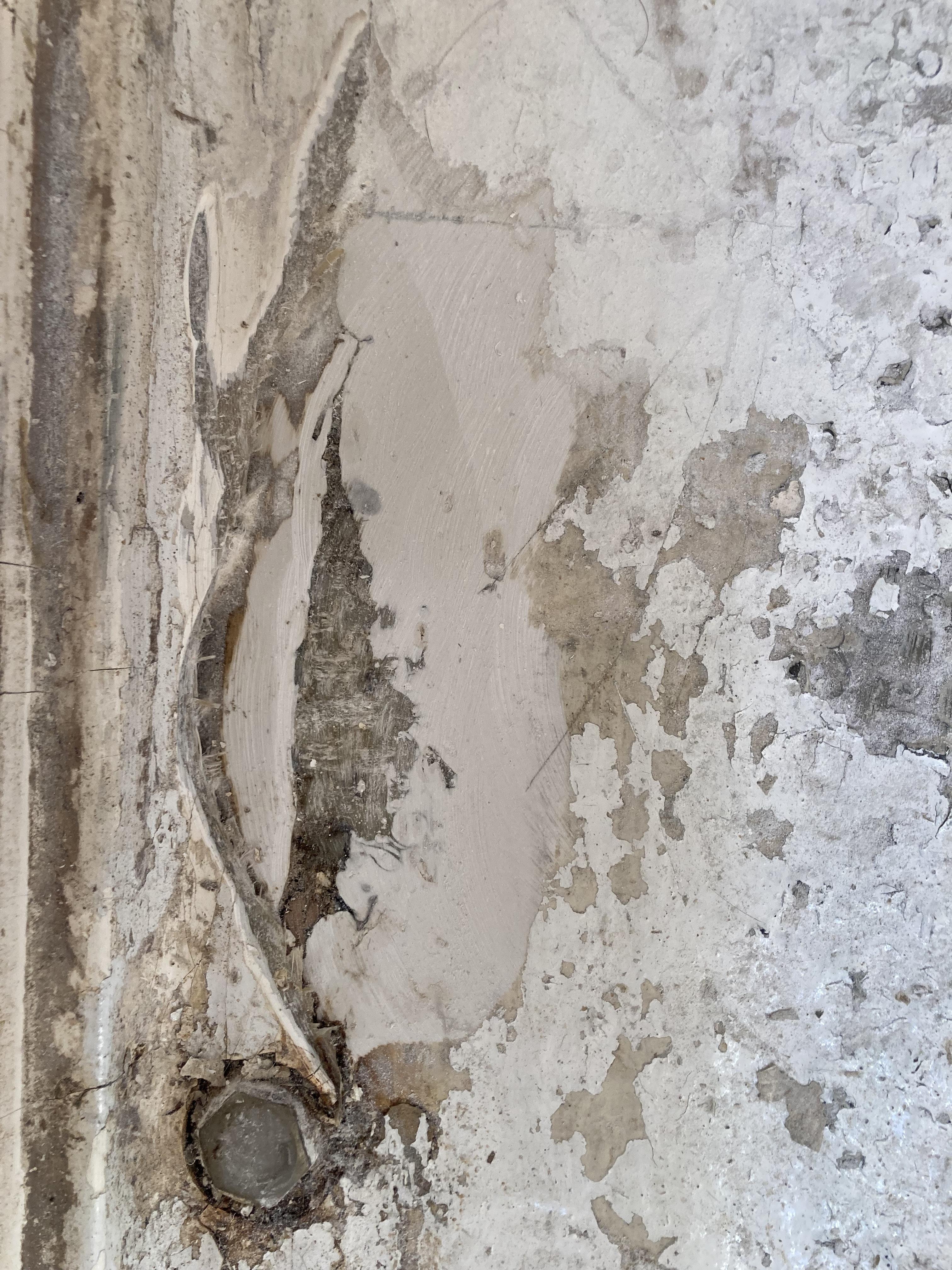
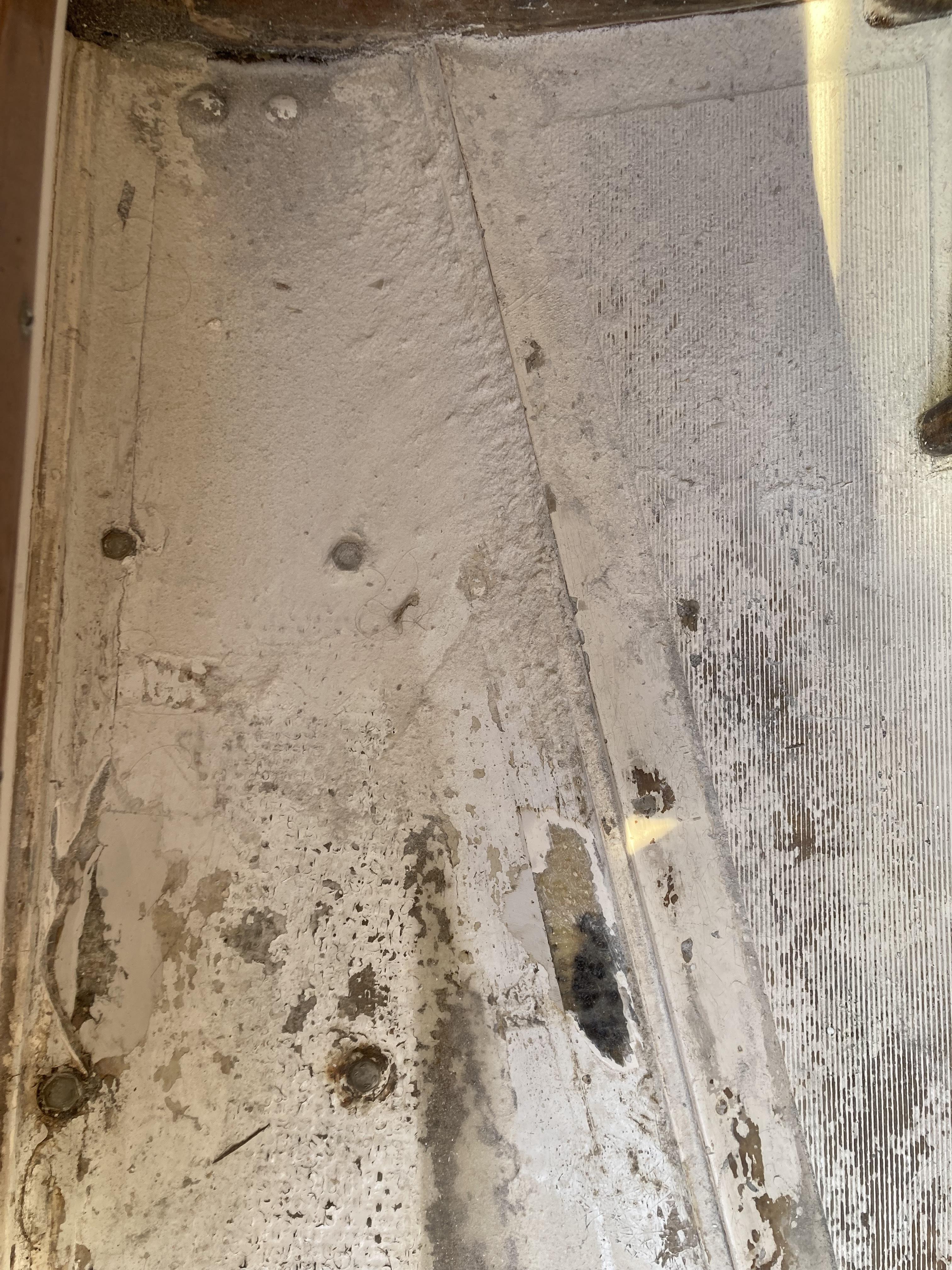 3 août 2023 à 20 h 26 min #32167
3 août 2023 à 20 h 26 min #32167The way they want to do it is do grind away a gap around the keel/hull connection line all around on the outside and refill that with Sikaflex. They say Sikaflex flexes a little bit and seals it well, and that’s what is used on modern boats these days for that purpose.
On the inside, they want to sand down a lot of the material all around what they call « the box », apparently the structural element taking up the keel from below. For that they actually need to cut through the built in portside ‘furniture’ hull element, because that is partly covering the box. They would then redo that with a lot of fibreglass to strengthen it, which would actually make it come up a few centimeters higher, so there would be no more space/need for the plywood cover. The bolts would be housed in little cavities that are then closed up with silicon. It would then all be finished up and painted properly.
It actually sounds like it would be really well done and could look pretty nice. They want 2.000 EUR for that, plus/minus. 😅
Factoring that into the buying price will be a tough sell…
Anyways, I’ll keep you posted!
4 août 2023 à 10 h 56 min #32169Hi Wilhelm,
yes I have the same problem on my edel4 the seal of the boxes filled with foam which must make it insumersible has come off on each side. this is where the salt water comes out. It is true that I changed my fin last year and hit it well. In addition, I opened the outer seal between the salmon and the shell. But I think I didn’t fill the outer seal enough, with the pressure of the daggerboard on the tip a crack appeared on each side. So I think that in navigation these cracks must siphon and bring in the water. Because on my return from hoedic, I started by sailing without going down the daggerboard, very little water entered. and as soon as I lowered the centreboard, an hour later I had 3 litres. So I’m still wondering if I should put the salmon down or just reopen the joint on each side at the top of the salmon and fill it well with sikaflex then sealants?
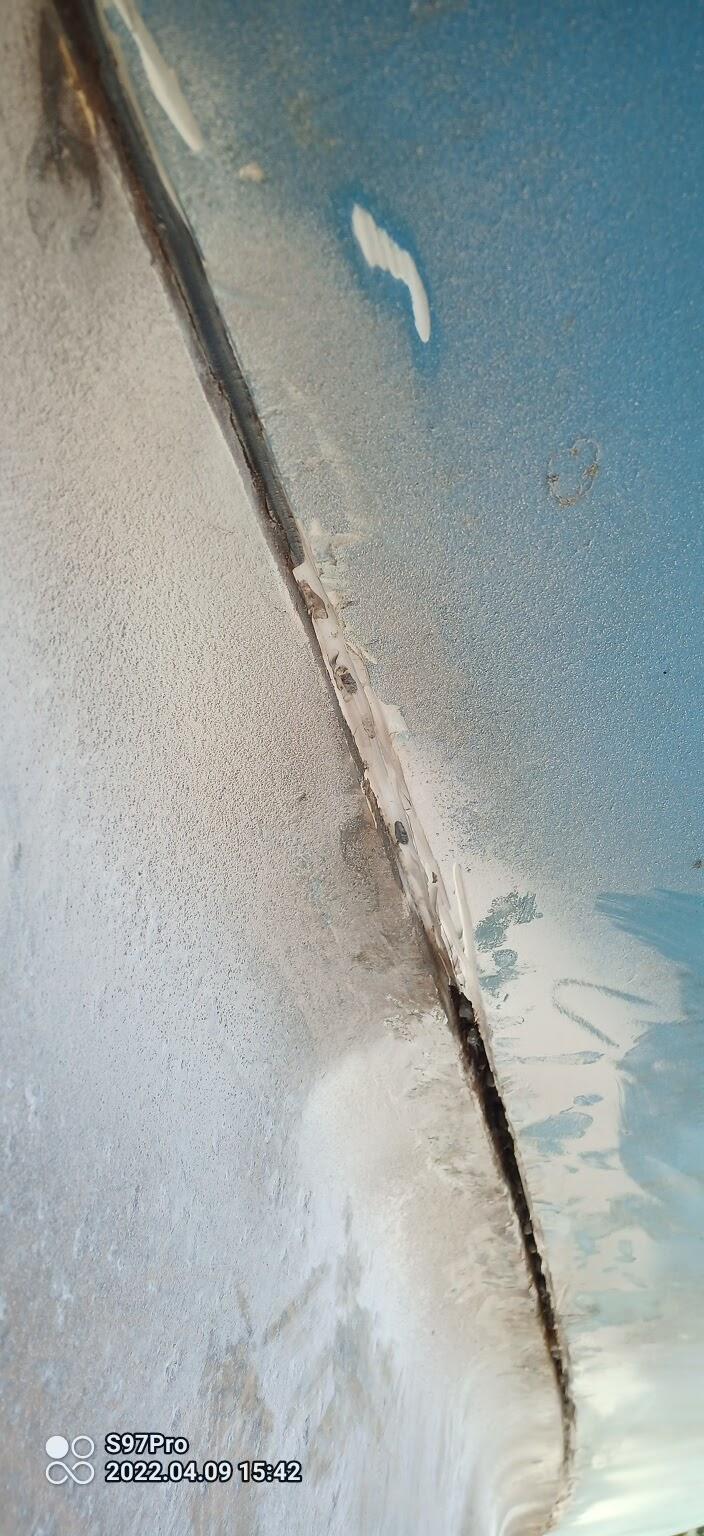
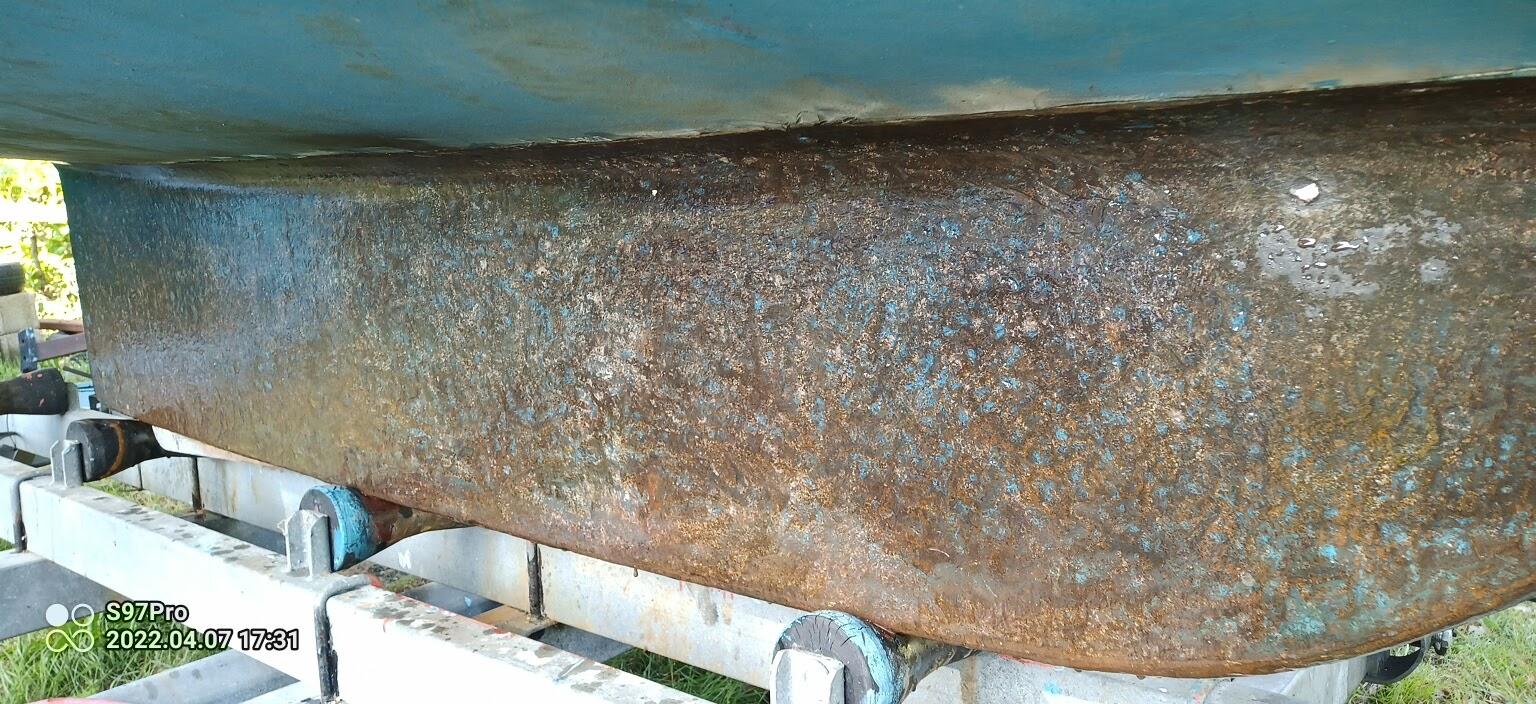 8 août 2023 à 13 h 05 min #32171
8 août 2023 à 13 h 05 min #32171Hello kersau,
that indeed sounds very similar to what is going on with the boat I’ve been looking at. Although there is not quite as much water entering with this one.
I am sorry, the ‘salmon’, is that the keel element? Because I only know the fish salmon, but the word also came up when translating your and others’ posts with Google Translate.
[…] reopen the joint on each side at the top of the salmon and fill it well with sikaflex then sealants?
This is what the guys wanted to do here: Sand away material so there is a good gap there and then fill that up with Sikaflex. And that’s also what the current owner of the boat ordered to be done now, as the price for that was very reasonable (150 EUR). He then wants to put it back in the water and see if that fixed the problem already. Although of course while it may slow down or stop the issue of water entering, the (substantial) structural damage done by the delamination that has already happened is not going to be addressed by that.
But I will let the guy know, that he should really do a good session, to know if this helped or not. And I can also let you know what comes of this of course!
8 août 2023 à 17 h 11 min #32172Yes, in french the iron part that surrounds the centerboard is called « saumon » which is the same word used for the fish.
In the following link, the chapter « dériveur avec saumon » is what we have on Edel 4 DL ; DL stands for « dériveur lesté », a boat with a centerboard (« dérive ») which has some weight (‘lesté »)
https://www.bateaux.com/article/29892/differents-types-de-lest-voiliers
So yes, when on this site you read « saumon », it’s probably more about the centerboard than the fish.
9 août 2023 à 13 h 26 min #32173Ah, cool. Thanks for clearing that up! :)
-
AuteurMessages
- Vous devez être connecté pour répondre à ce sujet.